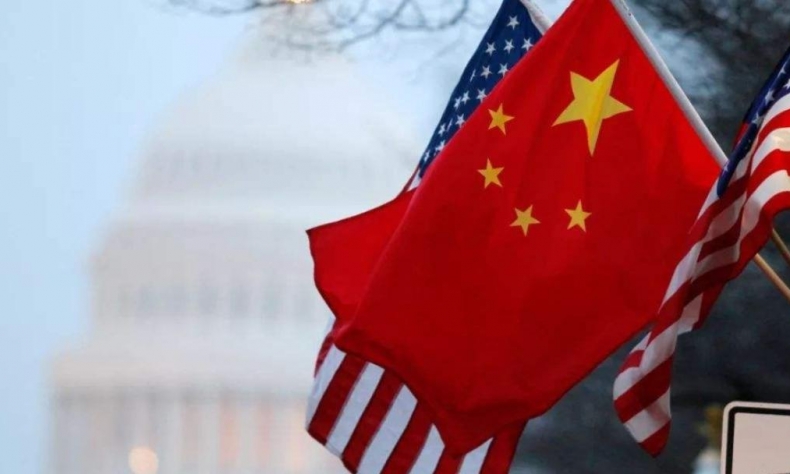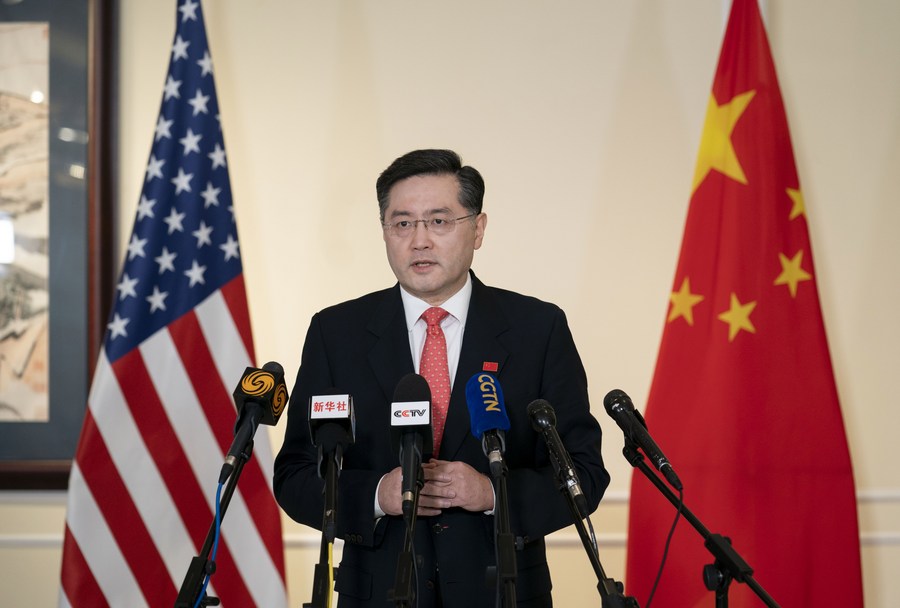An ‘Ossified’ US-China Relationship?

As Qin Gang, the newly appointed Chinese ambassador to the U.S., arrived in New York City, relations between the two powers are truly at a “critical juncture.”
Last week, Deputy U.S. Secretary of State Wendy Sherman visited Tianjin and met with China’s Vice Foreign Minister Xie Feng. During the meeting, Beijing delivered a series of messages to America setting out its “bottom line” on relations between the two countries. Commentators widely believe that the exchange constitutes an “ossification” of a deepening rivalry between the two powers, arguing that there is shrinking room for cooperation and growing risk of instability. The meeting was compared in turn to previous talks in Alaska, where the focus was on the “combative tone.”
Is the U.S.-China relationship doomed to fail? And who is responsible for the “stalemate” which Xie described? From China’s perspective, this is not so much a lost cause, but rather the situation is derived from America’s inability to respect China’s interests and appreciate its red lines. The United States has for the past two years, beginning with the Trump administration, sought to retrograde the U.S.-China relationship from something that should be complex and nuanced, into a zero-sum game based not on shared interests, room for compromise or negotiation, but a simple question of “win” or “lose.”
The Biden administration has, against the expectations of many, embraced this mindset. He has said that China is “going to eat our lunch” and vows to “win the 21st century” which is little different from the previous administration’s claim that China is “ripping off the United States” among other things. This simplistic and uncompromising view of the relationship has created a total inability to pursue compromise, collaboration or reason. Xie highlighted that while the U.S. said it wanted to “cooperate” with China on other matters, its primary focus and interest was to pursue antagonism against China and to frame the country as an “imaginary enemy,” which has left an inability for relations to function properly.
In doing so, the U.S. has whipped up vitriolic levels of hysteria and grossly misrepresented China’s goals and intentions, frequently depicting China as a “threat” to its global dominance and falsely claiming that the country is out to create a world order of its own and displace it as the dominant power. In many ways, this is a reaction to the rise of China. The world order has shifted away from the unipolarity that the United States once enjoyed in the 1990s. This naturally creates anxiety, but it nonetheless reveals the “hegemonic” mentality espoused by Washington which reveals its almost religiously held belief that America should permanently and exclusively ideologically dominate the entire world, and that it has a right to reshape the world into its own image, ideology and values.
To justify this, the United States has scapegoated China for all its domestic woes, claiming that it is China that has rendered America an unequal country, that China is responsible for the vices of capitalism in shifting jobs overseas, eroding manufacturing and putting regions of the country into decline, and that COVID-19 has only exacerbated this politics of scapegoating and vilification.
None of this is rational, and the consequences have shown firmlyin the U.S. government’s inability to handle its relationship with Beijing in a mature or fair way, seeking to blacklist Chinese companies, attempting to suppress its development through technology embargos, undermining its national sovereignty in Hong Kong, using allegations of forced labor in Xinjiang to discredit sectors of its economy, demanding allies side with it in competing with Beijing, proliferating sinister conspiracy theories blaming China for COVID-19 – the list goes on.

How else is China supposed to respond to this? And should the blame be based on China for this situation? Beijing has long held a foreign policy which sets out its own interests and red lines but nonetheless gives space for compromise and co-existence with the United States – it is not a policy of absolutist hegemonism as seen in Washington. Is this truly a rivalry? Is China attempting to be another America? Absolutely not, yet America’s actions push it onto that path as a reaction, as opposed to a willing initiative.
China’s goals have always been very clear: to develop into a prosperous and modern country, and to protect its national sovereignty from foreign aggression, while also helping other countries in the global south find a path to development. In this case, the hostility, the inability to accept the other and the zero-sum mindset is almost exclusively all coming from one side.
China is not setting out a race for global supremacy, but rather its red lines and interests – which the United States refuses to respect – and it will stand up for itself accordingly. It is always willing tomake the U.S.-China relationship work considerably and pragmatically, but one side has specifically decided that they don’t want that, and this is why we are where we are today.
As Qin Gang, the newly appointed Chinese ambassador to the U.S., arrived in New York City, relations between the two powers are truly at a “critical juncture.” Washington must be prepared to make the correct choices for the interests of both countries, avoiding global confrontation, avoiding rivalry and returning to the fundamentals which have guided their ties over the past 50 years.
 Facebook
Facebook
 Twitter
Twitter
 Linkedin
Linkedin
 Google +
Google +







